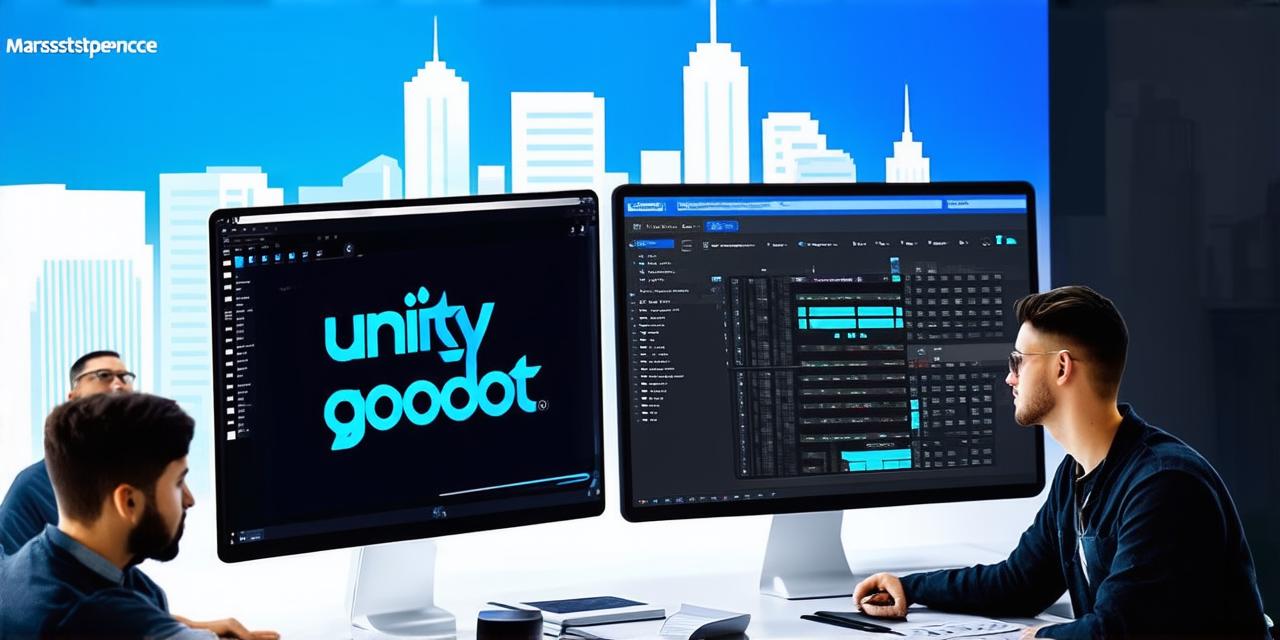Ease of Use:
Unity is a popular game engine that has been around since 2008. It offers a user-friendly interface that allows users to create games with minimal coding knowledge. Unity also has a large community of developers, which means that there are many resources available online for learning and troubleshooting. However, it can be difficult to learn the ins and outs of Unity’s scripting language, C, which may make it challenging for beginners.
Godot, on the other hand, is a newer game engine that was released in 2014. It has a steeper learning curve than Unity due to its scripting language, GDScript, which is similar to JavaScript. Godot also offers more advanced features than Unity, such as support for physically-based rendering and real-time shaders. However, these advanced features may make it difficult for beginners to understand and use effectively.

Summary:
In conclusion, both Unity and Godot have their own advantages and disadvantages when it comes to ease of use. Unity is a good option for beginners who want to create games with minimal coding knowledge, while Godot is better suited for experienced developers who want to take advantage of advanced features. Ultimately, the choice between the two engines will depend on each individual’s preferences and skill level.


